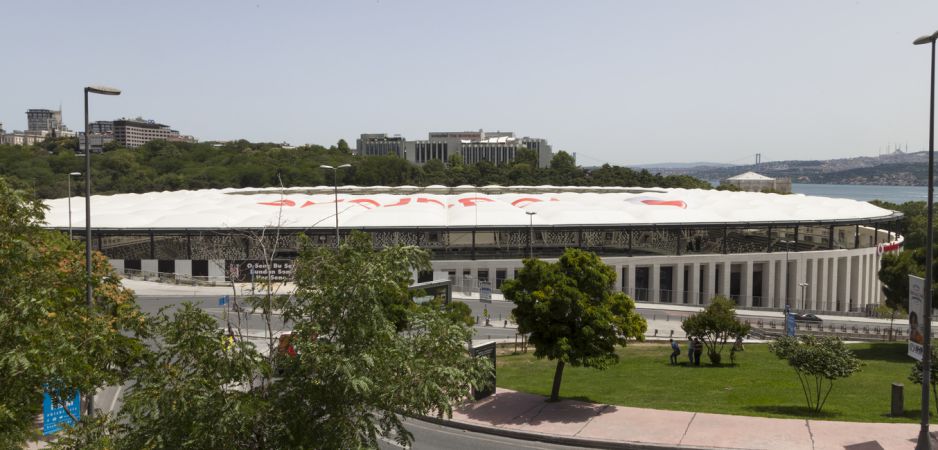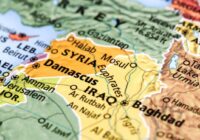At a time when multiple terrorist groups are targeting Turkey, a political solution with the Kurds might be the best option.
Twin bombs in Istanbul may not have targeted Besiktas JK’s stadium, but they underscore the propaganda value of attacking a soccer match for both jihadist and non-jihadist groups. They also raise questions about counterterrorism strategy in Turkey.
The Kurdistan Freedom Falcons (TAK), a splinter of the outlawed Kurdistan Workers’ Party (PKK), claimed responsibility for the blasts on December 10, which targeted police on duty to maintain security at a match between top Turkish clubs Besiktas and Bursapor. Thirty-eight of the 30 people killed in the attacks were riot police.
Unlike the targeting of stadiums by jihadist groups, including the Islamic State’s (IS) attack on the Stade de France in Paris in November 2015 and its reportedly foiled attempts to bomb international matches in Belgium and Germany, the TAK’s operation appeared designed to maximize police casualties and minimize civilian ones.
Istanbul Attack
American-Turkish soccer scholar and writer John Konuk Blasing, reporting from Istanbul during the blasts, noted that the attacks occurred two hours after the match, which was attended by more than 40,000 people, had ended. Blasing argued that the timing called into question President Recep Tayyip Erdogan’s effort to capitalize on the attacks by asserting that they had been “aimed to maximise casualties” irrespective of their identity.
Blasing reasoned that “the target of the stadium was chosen in order to send a message, a twisted and violent message that says: ‘We can do worse damage if we wanted to. Right now, we are attacking the state, not citizens. But if we want to target citizens, we can do that too.’” In other words, Kurds—much like the Islamic State, al-Qaeda, Boko Haram or al-Shabab—could one day target soccer matches that maximize the publicity effect of their operations because the games are often broadcast locally, regionally and internationally.
Erdogan’s assertion that the Istanbul attacks sought to cause random casualties served a purpose: to lump together all forms of political violence, including jihadist attacks that seek to cause maximum civilian casualties, and in the case of militant Turkish Kurdish groups, the targeting of a state that long suppressed Kurdish political and cultural rights, and cynically derailed promising peace talks. The breakdown in talks occurred as Erdogan was preparing for a second round of elections in November 2015 after June polls had produced a hung parliament.
Peace Talks
To be sure, the government and the PKK share equal blame for the collapse of the six-year-old peace talks, which followed the killing by the PKK of three Turkish policemen in June 2015. Similarly, southeastern Turkey continued to experience sporadic violence during the ceasefire, and the PKK had not fully lived up to its commitment to disarm and withdraw from Turkish territory.
Nonetheless, analysis with a supercomputer of two years’ worth of geospatial data, which aimed to establish how militant Kurdish groups perceive threats, suggested that the ceasefire on Turkish soil had been largely successful prior to the killing of the policemen. International relations scholar Akin Unver, who conducted the analysis, noted that the PKK had focused its military activity in 2014 and early 2015 on fighting the Islamic State in Syria, in a bid to further the national aspirations of Syrian Kurds.
Amid Turkish and Kurdish doubts about the sincerity of their interlocutors in the peace talks, PKK support for the Syrian Kurds challenged Turkish policy, which was often more focused on stymieing the rise of Kurdish nationalism and the emergence of a Syrian Kurdish entity than on defeating IS, which Turkey, at times, viewed as a bulwark against the Kurds. The killing of the Turkish policemen was the convenient straw that broke the camel’s back.
“There is only one thing both sides agree upon: in the months before the collapse there was not much negotiating going on. Our data show there was not much fighting either,” Unver wrote in the Financial Times. He warned that the renewed hostilities with the Kurds, coupled with Erdogan’s crackdown on the pro-Kurdish Peace and Democracy Party (HDP) whose leaders and members of parliament have been targeted and/or detained in the wake of July’s failed military coup, “serves as fodder for disenchantment and radicalisation” among the Kurds.
Unver’s analysis has a bearing on Erdogan’s effort to lump all political violence together. To be sure, distinctions do not justify the use of violence, nor does the targeting of police officers rather than civilians give it any greater moral value.
Political Solution in Turkey
The distinction is, nonetheless, significant in establishing the facts on the basis of which strategies to use that prevent any escalation and the further shedding of innocent blood. More than 30 years of armed confrontation between the Turkish military and Kurdish militants, in which upward of 40,000 people have been killed, have failed to resolve the conflict.
 Unver’s analysis suggests the pursuit of a negotiated, political solution, however fraught, may have been a more promising approach at a time that political violence perpetrated by multiple groups has wracked Turkey. Not counting devastating jihadist attacks, the latest bombings were the sixth Kurdish operation this year.
Unver’s analysis suggests the pursuit of a negotiated, political solution, however fraught, may have been a more promising approach at a time that political violence perpetrated by multiple groups has wracked Turkey. Not counting devastating jihadist attacks, the latest bombings were the sixth Kurdish operation this year.
“It is chilling that this may only be a prelude to much worse in Turkey,” Blasing noted. Much worse does not bode well and could increasingly turn soccer pitches into prime targets.
The views expressed in this article are the author’s own and do not necessarily reflect Fair Observer’s editorial policy.
Photo Credit: Berko85
Support Fair Observer
We rely on your support for our independence, diversity and quality.
For more than 10 years, Fair Observer has been free, fair and independent. No billionaire owns us, no advertisers control us. We are a reader-supported nonprofit. Unlike many other publications, we keep our content free for readers regardless of where they live or whether they can afford to pay. We have no paywalls and no ads.
In the post-truth era of fake news, echo chambers and filter bubbles, we publish a plurality of perspectives from around the world. Anyone can publish with us, but everyone goes through a rigorous editorial process. So, you get fact-checked, well-reasoned content instead of noise.
We publish 2,500+ voices from 90+ countries. We also conduct education and training programs
on subjects ranging from digital media and journalism to writing and critical thinking. This
doesn’t come cheap. Servers, editors, trainers and web developers cost
money.
Please consider supporting us on a regular basis as a recurring donor or a
sustaining member.
Will you support FO’s journalism?
We rely on your support for our independence, diversity and quality.






